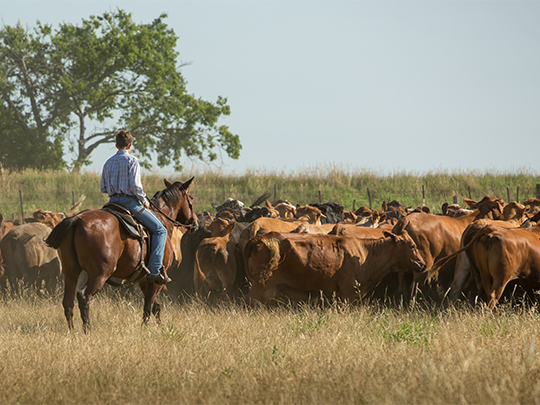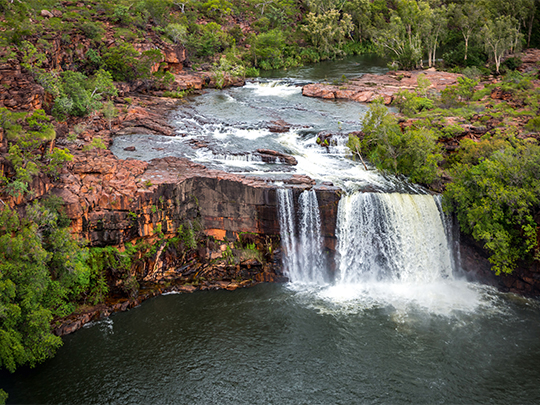
Behind Australia's carbon neutral brand
One of Australia's largest and oldest cattle producers has drawn on MLA insights to launch one of the country's first carbon neutral beef brands.
The beef industry is the custodian of more than half of Australia’s land mass, making it one of the most critical actors as the nation addresses environmental challenges such as climate variability and increasing biodiversity.
The industry prospers through maintaining a healthy environment and thriving ecosystem, from soil and vegetation, to water and the air and is committed to enhancing the ecosystems that foster productivity, while fulfilling its role as environmental stewards.
The ABSF’s theme of environmental stewardship has seven priorities and 18 indicators.

One of Australia's largest and oldest cattle producers has drawn on MLA insights to launch one of the country's first carbon neutral beef brands.

East Kimberly beef producers partnered with the Australian Wildlife Conservancy to assist with protecting native flora and fauna.